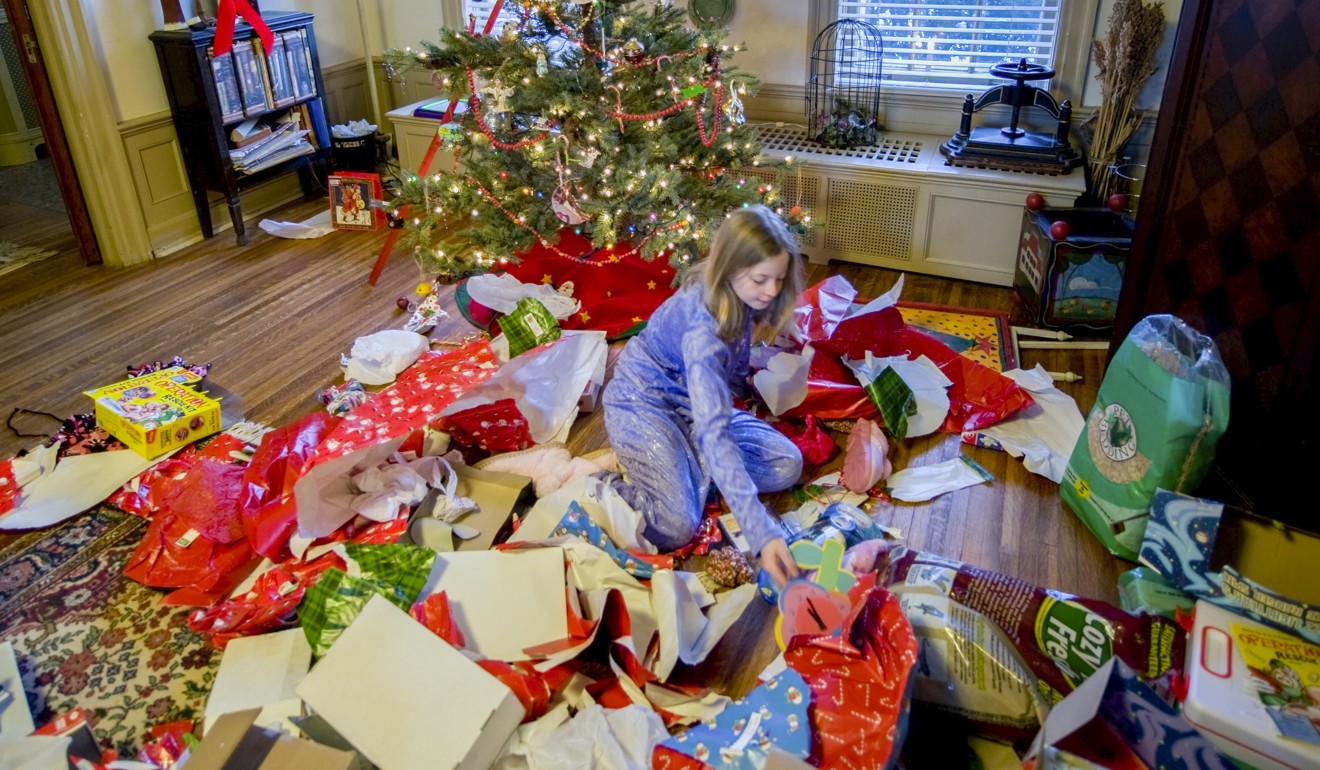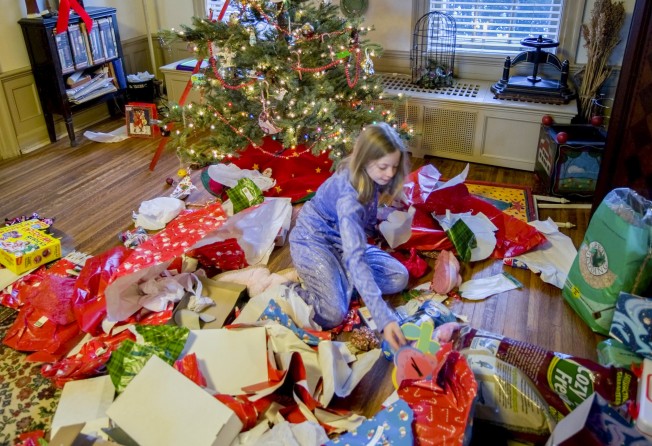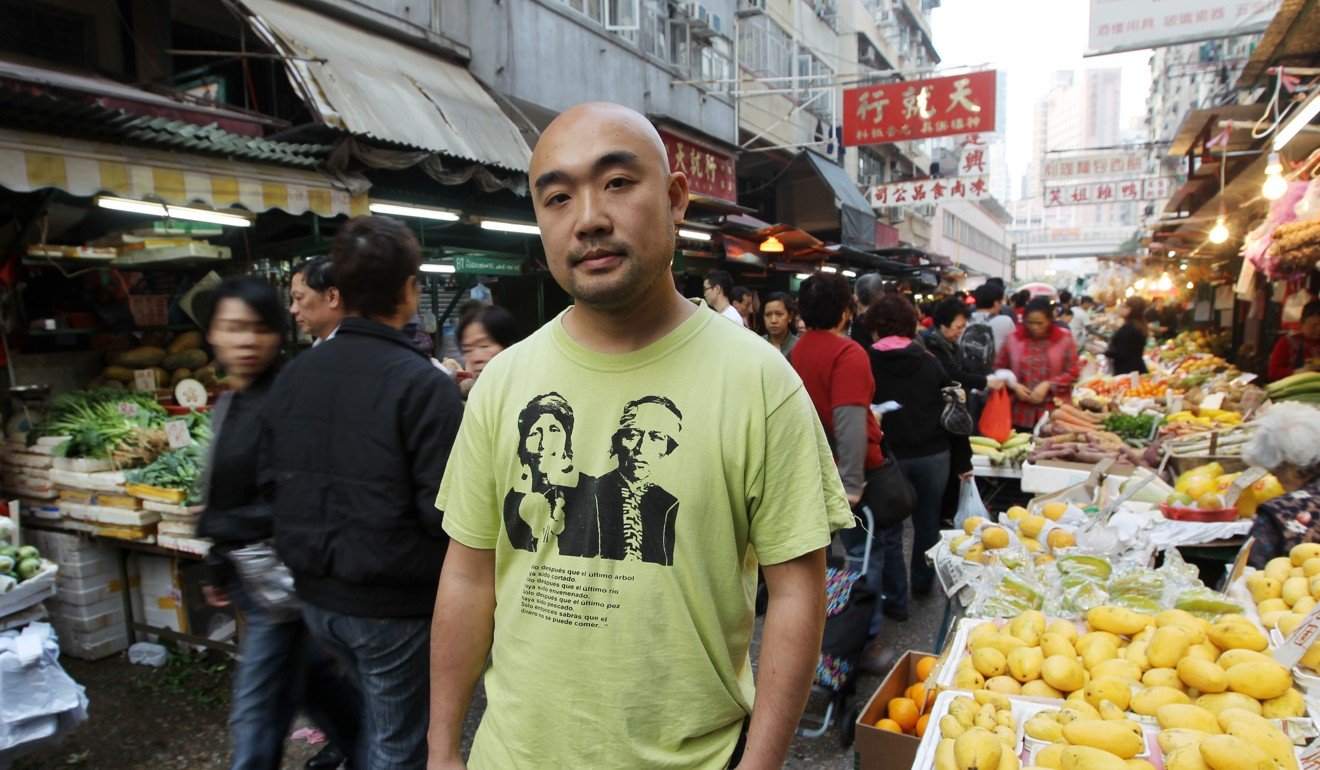
Eight in 10 Hongkongers expect to spend more this Christmas compared with last year
Another group finds some 138 tonnes of paper would be used if every person in Hong Kong were to receive a wrapped present at Christmas

Some of the figures surrounding Hong Kong’s Christmas consumer frenzy are truly shocking, such as eight in 10 Hongkongers preparing to splurge more this year, with some expecting to double their holiday spending.
And as a result, the waste produced over the holidays is expected to deepen the burden on disposal and local landfills which are on pace to reach capacity by 2019.
The staggering numbers trace back years and come from various sources. Statistics from the Leisure and Cultural Services Department reveal that around five tonnes of rubbish were collected from around Tsim Sha Tsui on Christmas Eve alone in 2007.
Furthermore, if every person in Hong Kong were to give one wrapped present at Christmas, some 138 tonnes of paper would be used, according to local environmental NGO Green Power.
In other words, the raw materials would amount to 2,400 trees and 240,000 litres of petroleum.

The charity also claims that 2,166 trees would need to be cut down if every household in Hong Kong were to send five Christmas cards.
As for festive spending, shoppers in the city seem to be more willing to blow cash this year in contrast with last Christmas, when a 2016 survey by the Hong Kong Research Association found that consumers were tightening their belts due to the sluggish economy.
Hong Kong’s shopping malls expect a warm Christmas with returning tourists and stronger local demand
And according to the local Metro Broadcast Corporation’s recent Christmas Consumer Survey, 82.3 per cent of Hongkongers expected their Christmas spending to be higher than last year, compared with only 16 per cent from last year’s survey.
Within this group, over 30 per cent of participants expected their holiday spending to be 10 to 30 per cent higher than in 2016, while 4.4 per cent thought their spending would double.
More and more people are using money to measure their gratitude and appreciation during the festive season
The survey also found that 83 per cent of Hongkongers were planning to buy Christmas gifts this year, whereas 52 per cent of survey respondents last year told the Hong Kong Research Association they would not be buying any presents at all.
Digital electronics appeared to be the top gift choice this year for spouses and significant others, while luxury food items such as red wine and chocolate were also popular for friends and loved ones, the survey found.
For environmentalist Pong Yat-ming, Christmas is a time to show friends, family and the community that he cares about them. But he claims that materialism in Hong Kong has weakened the holiday spirit.
“More and more people are using money to measure their gratitude and appreciation during the festive season,” he says. In 2010, Pong launched a year-long boycott against local property conglomerates and large retail chains.
“Fewer people spend time and effort preparing a meaningful and unique gift.”

Pong says that, unlike many Hongkongers, he bought organic oranges from a local farmer as Christmas gifts for his friends and family this year.
“I think gifts are more meaningful when they have a story to tell that would surprise the receiver,” he says. “Not everyone likes a pricey gift where he or she can tell which retail store it is from first sight.”
Additional reporting by Yupina Ng